Future cars: from AR windscreens to an in-car secretary
Not to be confused with fuschia cars
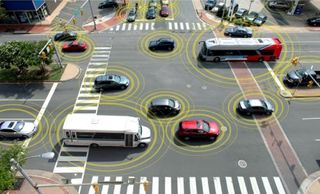
When cars politely drive themselves there'll be no city stop-starting or muppets cutting you up, just a beautifully orchestrated ballet of cars going about their business, with congestion a distant memory. Every vehicle will be linked into a city's traffic management system, which will control the flow of traffic by changing traffic light sequences on the fly to give priority to busier roads.
But you won't notice any of this, because you'll be watching last night's Game Of Thrones streamed direct to your windscreen.
Car, heal thyself
In a few years you could be able to repair scratches, and the odd semi-serious ding in your motor's bodywork just by parking the car out in the sun. Chin-stroking lab coats have developed a polyurethane coating compound that heals itself when it's exposed to ultraviolet light.
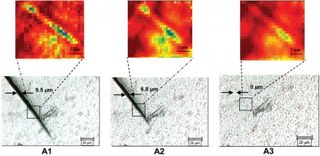
The sun's radiation starts off reactions within the polymers, resulting in damaged molecules linking up with each other again in around half an hour. So not only would light scratches disappear over time, but your car would remain in showroom condition for years.
The only hitch is that the effect is local, and it only works once – but then getting a scratch in the same place twice is only likely to happen if a disgruntled neighbour goes to work on your car with his key.
Zero-gravity car seat
NASA has linked up with Nissan, of all people, to create a car seat that delivers you to your destination feeling less tired than when you set out. This zero-gravity inspired seat creates the same 'neutral posture' that astronauts experience while weightless to alleviate fatigue.
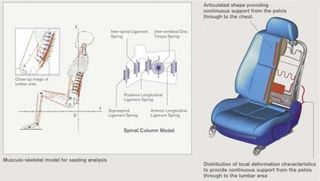
It does this by fundamentally changing the structure of the seat throughout long drives, providing continuous support through the hips and back and reducing the load on muscles and the spinal area.
Get daily insight, inspiration and deals in your inbox
Get the hottest deals available in your inbox plus news, reviews, opinion, analysis and more from the TechRadar team.
YouTube : http://www.nissan-global.com/EN/TECHNOLOGY/OVERVIEW/zero_gravity_inspired_car_seat.html
Ear protection
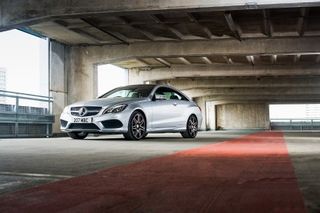
Developed by Mercedes for its E-Class, the company's ear-protecting tech will save your lugs in the event of a crash – which, it turns out, is likely to be on the loud side.
When the car senses that a collision is imminent the stereo broadcasts a loud burst of static at about 85 decibels, which triggers your 'acoustic reflex'. This is a contraction of the stapedius muscle in the middle ear, which blocks out sudden, incoming sounds to protect your ears from the much louder noise that's about to hit you.
Gyms, TVs and miscellaneous mod-cons
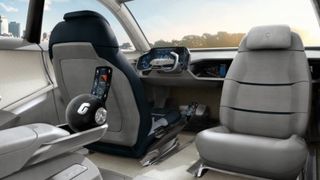
As the driver is designed out, vehicle design will change beyond all recognition. With no transmission tunnel or steering column to get in the way, car interiors can essentially be stuffed with whatever your heart desires.
So you could catch up on that rowing machine or spinning session you missed at the gym, or just crank the seat down and watch a movie on a panoramic screen running from the doors, across the roof and to the boot.
Self-charging cars
We're sticking this in mainly so that we can include the video below of the super-creepy auto-charging snake that Tesla is developing, but bear with us. The concept is a self-driving car that, after it's dropped you off at the ambassador's soirée, will drive back to its garage, park up, and wait for a snake-like arm to find the charging plug and slide itself home in spine-tingling slow motion.
Failing that, induction charging will simply send juice from the road to your car while you drive. Incredible.
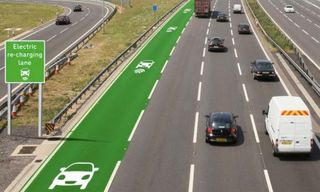
Take a letter, Miss Mondeo
The only thing preventing your motor from becoming your secretary is data, and soon you'll be sharing your diary with your car. If you have an appointment your car will check current traffic conditions, estimate the time it'll take to reach your meeting venue, and buzz you discretely (via your smartwatch, for instance) when it's time to leave. Land Rover is already working on this technology.
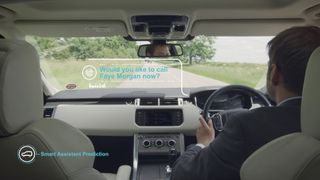
Stuck in traffic? A notification will pop up on your AR windscreen offering to telephone or message the person who's expecting you, and who is currently drumming their fingers irritably on their desk. Plus, when you get to your car, you'll find that it's warmed up and de-iced itself for your arrival in winter, or has set the air con to your preferred coolness in summer.
Got an email to dictate? Voice recognition will jot it down for you, and fire it off to anyone in your contacts list. Sorry, human secretaries – this isn't looking good for you.
It's not all good news…
There are going to be some serious losers as cars head into the future. For instance, governments and local authorities the world over are set to lose billions in fines as cars remain punctiliously within the speed limit and stop without fail at red lights.
People in need of a donated organ or two are going to find that the well dries up pretty quickly as road deaths become a thing of the past. And delivery drivers should be overhauling their CV right now, with haulage set to become automated for overnight deliveries, and drones and autonomous vans taking over.
And finally, spare a thought for the insurance companies. As cars become driverless, liability will move over to the manufacturers as crashes, by definition, will be the fault of the technology, not the driver; but that very technology should mean the number of accidents will decline exponentially, resulting in a dwindling need for insurance firms. The poor dears.
Most Popular


